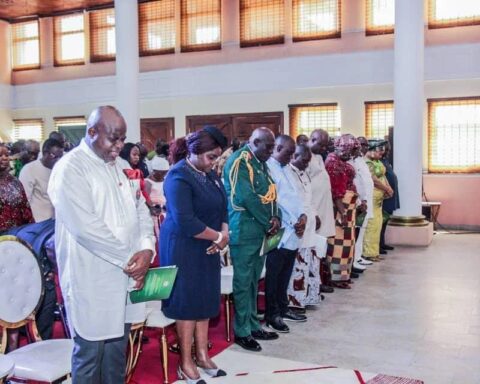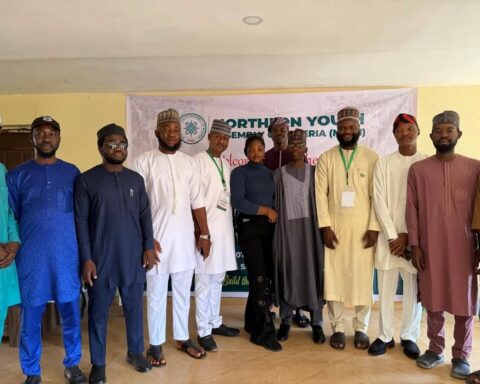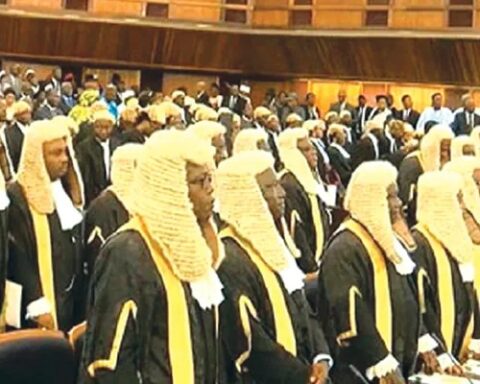By Ademola Tijani
A first-class monarch in Osun State, the Owa-Obokun of Ijesaland, Oba Gabriel Adekunle Aromolaran has died exactly 30 days (one month) shy of 87th birthday this October 13.
His transition was announced in a statement on Thursday, September 12, in Osogbo, the state capital, by the Asiwaju of Ijesaland, Chief Yinka Fasuyi.
Oba Aromolaran, the last born of his mother, was born into the royal household of Oba Iluyomade Aromolaran I, the Owa-Obokun and paramount ruler of Ijesaland, who ruled from July 1920 to July 31 1942; and Princess Tinuola Aromolaran of Esa-Oke in Ijesaland.
The death of the Owa Obokun of Ijesha land, an important traditional ruler in Yorubaland, is a significant historical event tied to the rich cultural heritage of the Yoruba people.
The title “Owa Obokun” is one of the oldest in Yoruba history, particularly among the Ijesha people of Osun State in southwestern Nigeria. While there have been several Owa Obokun rulers, the historical narrative often associates the death of any Owa Obokun with deep cultural significance, involving ceremonies, spirituality, and traditional rites.
The title “Owa Obokun” traces back to the legendary Prince Ajibogun, son of Oduduwa, the mythical progenitor of the Yoruba people. The Owa Obokun kings have historically been seen as both political and spiritual leaders of the Ijesha people, with their deaths often marked by elaborate traditional rites.
When an Owa Obokun dies, it is typically not publicly announced immediately. In many traditional Yoruba societies, the death of a king is shrouded in secrecy and referred to in euphemistic terms. For example, it is said that the king “joins his ancestors” or “sleeps,” and the news is withheld from the public until the appropriate rituals have been performed.
The death is first communicated to a select group of chiefs and palace officials, known as “Ilaris” and “kingmakers.” These figures play a key role in ensuring that the succession process begins without delay. The announcement to the public comes much later, after the initial rites.
The burial of an Owa Obokun is a sacred and highly ritualized affair. The body is typically interred in a secret location, known only to a few within the royal family and traditional council. The funeral rites are performed by priests, and the ceremonies are designed to guide the king’s spirit to join his ancestors. These rites can involve traditional music, dances, sacrifices, and the participation of various Yoruba deities.
In Yoruba belief, the king holds divine authority and is regarded as a representative of the gods on earth. His death is seen not as an end but as a transition to the spiritual world, where he becomes one with his ancestors. The Owa Obokun’s passing may also prompt consultations with oracles, diviners, and spiritual advisers to ensure the king’s spirit is at peace.
After the death of the Owa Obokun, the kingmakers and traditional chiefs are responsible for selecting a successor from among the royal lineage. The selection process can be complex, often involving consultations with Ifá priests who perform divination to ascertain the will of the gods.
The Ijesha people observe an extended mourning period during which cultural events and celebrations may be suspended. During this time, the people of Ijesha honor the life of the deceased king with remembrance ceremonies, songs of praise, and reflections on his achievements.



























